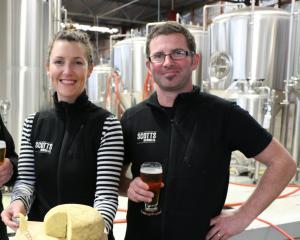
"Don’t be 80," she said. She was 80 herself at the time. "Everything hurts," she said.
After 80 my mother’s one ambition was to die in her own home, thus avoiding going into care. It’s a common ambition. Visit any dementia ward and you will hear the residents longing for home.

"I’m too old," she said. "You’ll find things wrong with me and keep me in." I admired that.
On another occasion she told a neighbour, "If my curtains aren’t open by 9 o’clock, please come and check I’m decent before you call an ambulance."
I admired that even more. She wasn’t the least scared of dying. She was scared of dependency and the indignity that came with it.
At the age of 92 my mother all but achieved her ambition of dying at home. She had a stroke and fell to the floor in the living room, hitting her head against the mantelpiece. She would have died had not my brother come visiting.
When my mother didn’t answer the door, he broke in, called paramedics and somehow they managed to resuscitate her. But her mobility had gone, her mind followed it in short order, she never went home, and the rest was everything she had dreaded.
She spent five pointless, wretched years in a home for the demented. When death eventually came, it did so to a curled and wizened husk, unable to see or speak or react in any way.
We’d all like to avoid my mother’s fate. And yet it is increasingly common. The reasons are several.
First, the drive to live is the strongest of all drives. I once overheard two old boys talking in a pub about a third old boy. "He doesn’t want to be 80," said the first old boy. The second old boy took a slow sip of his gin. "He will when he’s 79," he said.
Meanwhile, the taboo against taking life remains the strongest of all taboos, and every year medicine gets better at keeping the heart beating. So life expectancy keeps growing and one reads, with no way of disproving it, that the first person to live to 200 has already been born, poor thing.
Even though death comes as a friend to the old and sick, the young and well see it only as the enemy. So science is keen to postpone or defy it. Only this week some scientific outfit showed off three recently born dire wolf cubs, which is remarkable since the dire wolf died out as a species 12,000 years ago. De-extinction has happened, apparently. Mammoths may be next. Meanwhile we people live on and on and there are fewer things than ever to die of. Take smoking.
The smoker — my father, for example — was a great benefactor of society. He lived a full working life, contributing his taxes to the general kitty. He also paid heaps of extra tax by buying cigarettes every day for 50 years. And then, around the age of retirement, he suffered a brief illness and died, costing the state almost nothing and never claiming the pension he’d paid for. But who can afford to smoke now?
I recently watched a BBC programme about ageing. It put groups of middle-aged volunteers through a series of television-friendly practical experiments. They drank fish oil, or did press-ups, or studied Swahili for a month or what have you, with a view to discovering which activities provided benefits that might ward off the nasties in old age. It was a bid to take control of the ageing process.
A cruel but telling irony was that the cheerful presenter of the show was Dr Michael Mosley. Dr Mosley died last year of apparent sunstroke at the age of 67 when on holiday on a Greek island. By doing so he showed that we still have some way to go before we overcome the biblical twins of time and chance.
The programme reached no definitive conclusions about ageing. But it did suggest — to the amazement of nobody — that a bit of social interaction did you good.
Add that to the piece I read many years ago — and have clung to ever since — about the health benefits of red wine and it’s hard to avoid the conclusion that the only responsible advice you could give anyone in their senior years is to spend as much time as possible at the pub.
• Joe Bennett is a Lyttelton writer.












